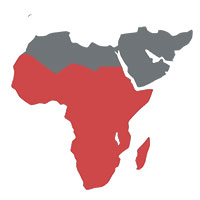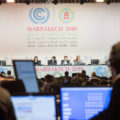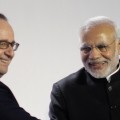COP22: Mainstream Messages and Underlying Currents
Katja Garson | November 16, 2016.
The mood of the conference shifted on Tuesday with the arrival of ministers for the high-level segment. There was an energetic buzz and a sense of it being the right place and time to get the necessary work done to achieve the 1.5°C target. Cutting through the positivity though, was the reminder that complacency is not an option, and that there is a huge amount left to achieve after the rapid entry into force of the Paris Agreement.
Amongst the high-level figures present today was King Mohammed VI of Morocco, who welcomed delegates with a 1,500 person lunch. Ban Ki-moon used his opening address to frame his last negotiations as UN secretary general as a conference that must build upon the initial cornerstones of the Paris Agreement. French President Francois Hollande echoed this sentiment, urging international leaders and civil society to work ever harder towards a “low carbon model of growth”. Some countries are making good progress on this, with Portugal’s Prime Minister António Costa announcing a goal to be carbon neutral by 2050.
In light of recent political news, Hollande drew applause when he declared that the US’ new president must respect the ‘irreversible’ Paris Agreement. The statement came as rumours continue to circulate about Trump’s intention to back out of the Agreement, a move which would have serious implications for international climate governance and financing, and for the fate of vulnerable nations.
Kiribati, the Seychelles and Nauru, as some of those vulnerable nations, highlighted their shared concerns.
All of these nations face climate change as an existential threat. Rising sea levels inch ever closer to engulfing islands beneath the waves, and if not enough is done to slow sea level rise, these nations could literally disappear.
Today’s multiple Fossil of the Day awards reflect that civil society aren’t seeing strong action following these sweeping commitment statements from leaders. Awards were threefold: the European Commission, for a lack of ambition around renewable energy which was revealed by leaked documents. Indonesia, for planning to use coal for 60 per cent of its power generation by 2019. And finally, New Zealand, for aiming to increase the value of NZ petroleum exports from NZ$3 billion to $30 billion per year.
Even as this slough of climate inaction was being highlighted, delegates gathered to hear UNFCCC executive secretary Patricia Espinosa speak on the political and moral imperative of moving to 100% renewable energy for limiting warming to 1.5°C.
Tuesday also happened to be gender day where women’s role in clean energy entrepreneurship was discussed, and a Momentum For Change event brought attention to gender inequality across climate-related sectors.
As ministers left the venue in the dying light, they passed by a large circle of people holding hands outside. The circle condensed into a cluster of soulful singers and was composed of diverse delegates, including ministers, all of whom stood in solidarity with Standing Rock and with those whose voices are not always heard.
Let’s see how the negotiations around adaptation finance and loss and damage, which continue this week, work to address issues of access, equity and justice which pushed to the surface today.













comment